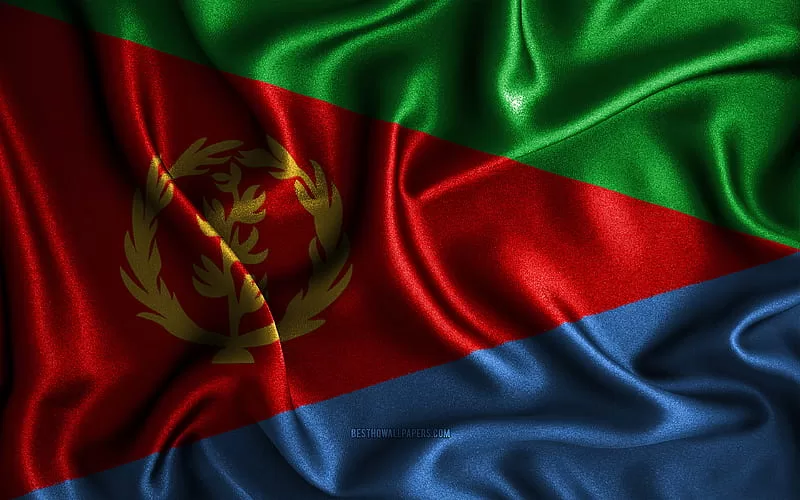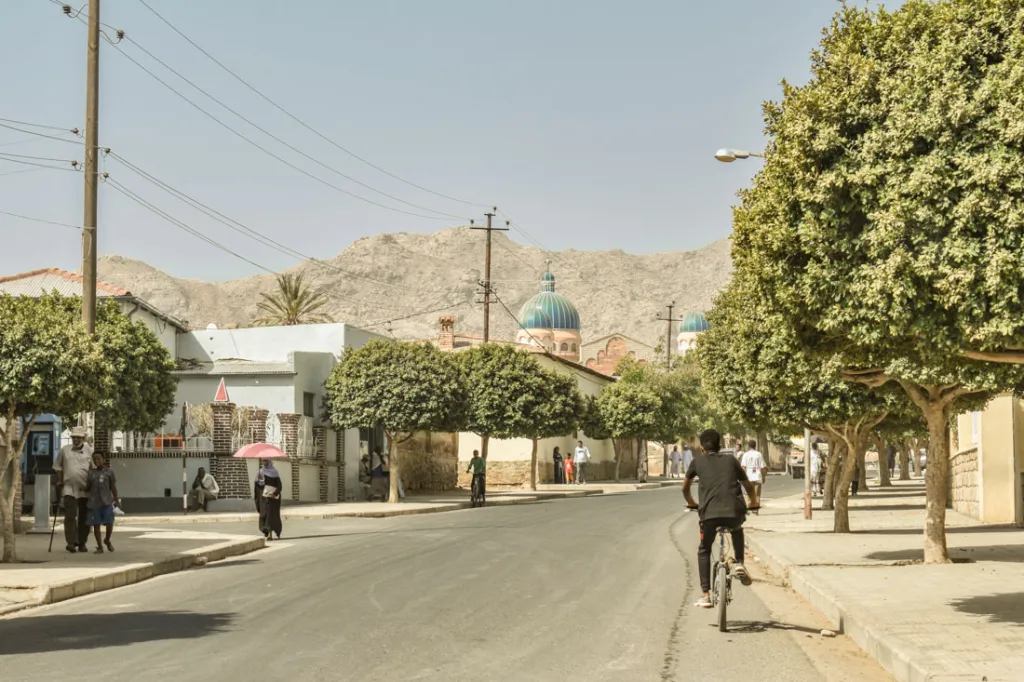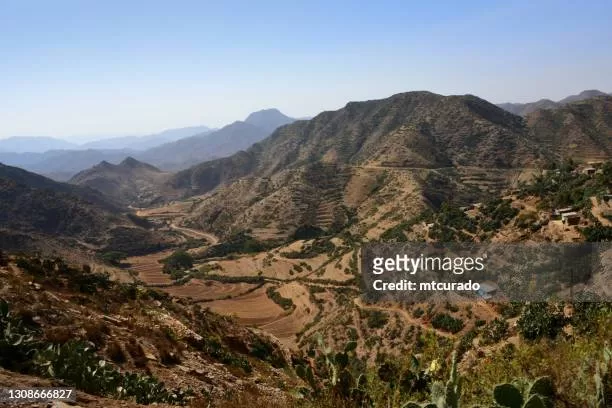Eritrea Country Report

Eritrea is a Northeast African country on the Red Sea coast, sharing borders with Ethiopia, Sudan, and Djibouti. It gained independence from Ethiopia in 1993 after a prolonged and bloody struggle. The country is known for its diverse cultures and languages, with Tigrinya, Arabic, and English serving as official languages. Asmara, its capital, is famed for its well-preserved Italian modernist architecture. Eritrea’s landscape varies from sandy beaches and coral reefs along the Red Sea to rugged mountains and arid deserts in the interior. The nation has a command economy, with agriculture being a mainstay for its population; however, it faces challenges such as limited freedom of press, political repression, and human rights issues. Despite these issues, Eritrea has made significant strides in public health and shows a rich cultural heritage through its cuisine, music, and festivals, reflecting a blend of indigenous and Italian influences.
Last updated: April 8, 2022
Security
Eritrea faces multifaceted security and risk challenges stemming from its geopolitical position, internal dynamics, and historical context. Its strained relations with neighboring countries, particularly Ethiopia and Djibouti, contribute to regional tensions and periodic border conflicts. Domestically, Eritrea grapples with political repression, human rights abuses, and a tightly controlled authoritarian regime, fostering internal dissent and potential instability.
Additionally, economic hardships, including food insecurity and high unemployment rates, exacerbate social tensions and fuel migration pressures. These factors collectively pose significant security and risk concerns for Eritrea, with implications for regional stability and human rights.
Last updated: April 22, 2022
Infrastructure

Eritrea’s infrastructure reflects a blend of its colonial history, subsequent decades of conflict, and recent efforts towards modernization. The country’s infrastructure is characterized by a limited but improving road network, essential for connecting its major cities and rural areas, albeit many regions remain difficult to access, especially during the rainy season. Eritrea’s railway, once a colonial marvel, has seen partial restoration efforts, mainly for tourism rather than as a significant mode of transport. The Massawa and Assab ports are crucial for its trade, though their capacities are limited compared to regional hubs. Electricity and water supply infrastructures face challenges in meeting demand, particularly outside urban centers, impacting economic development and quality of life. Despite these limitations, Eritrea has been investing in infrastructure development, including renewable energy projects, to bolster its economic prospects and improve living standards.
Last updated: April 22, 2022
Environment

Eritrea’s environment is characterized by a diverse range of ecosystems, from the arid deserts and lowlands to the fertile highlands and the coastal regions along the Red Sea. This diversity supports a variety of flora and fauna, though it faces several environmental challenges. Deforestation, soil erosion, and desertification are significant issues, exacerbated by overgrazing, deforestation for fuelwood, and unsustainable agricultural practices. These environmental pressures are compounded by a scarcity of freshwater resources, affecting both human and ecological health.
Eritrea’s coastal environment, including the Dahlak Archipelago, is noted for its coral reefs, mangroves, and marine biodiversity, which are vital for local livelihoods and have potential for eco-tourism. However, these areas are at risk from overfishing, pollution, and the global threat of climate change, which can lead to rising sea levels and increased water temperatures, affecting marine ecosystems.Last updated: March 11, 2022
Health and Medical
Eritrea’s healthcare system has made notable strides in improving public health despite limited resources and infrastructure challenges. The government’s focus has been on preventive care, with significant achievements in reducing the prevalence of communicable diseases such as malaria, tuberculosis, and HIV/AIDS through widespread vaccination campaigns, public health education, and improved access to healthcare services, even in rural areas. However, the country still grapples with issues related to maternal and child health, and non-communicable diseases are on the rise, reflecting a global trend. Eritrea’s healthcare system continues to face hurdles in terms of healthcare professional shortages, inadequate medical supplies, and the need for modern medical technology, impacting its ability to meet the broader health needs of its population.
Last updated: February 23, 2022
Political
Eritrea’s political landscape is marked by its status as a highly centralized, one-party state, with the People’s Front for Democracy and Justice (PFDJ) being the only legal political party since the country’s independence from Ethiopia in 1993. President Isaias Afwerki has led the nation since its independence, and the government has been criticized for its lack of political pluralism, absence of a functioning constitution, and postponement of national elections indefinitely, which were initially promised after independence. Eritrea is often cited for human rights issues, including freedom of speech, press, and religion, as well as for arbitrary detention and compulsory military service that is often extended indefinitely, leading to a significant diaspora.
The government justifies its stringent control and militarization as necessary for national security, particularly in light of historical conflicts with Ethiopia, though a peace agreement was signed in 2018 that aimed to resolve long-standing tensions. Despite this, the political environment remains tightly controlled, with little tolerance for dissent, impacting the country’s international relations and its citizens’ daily lives.
Last updated: April 14, 2022















